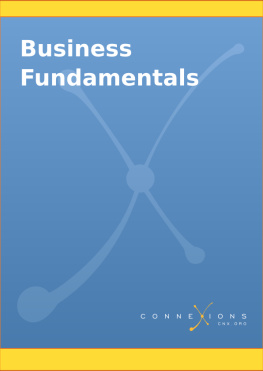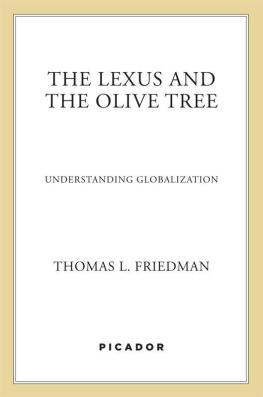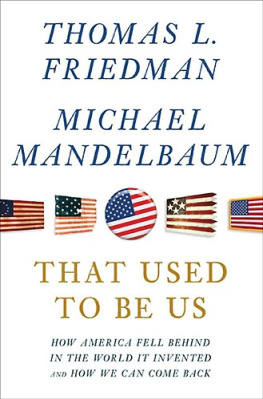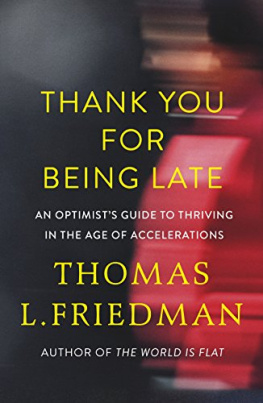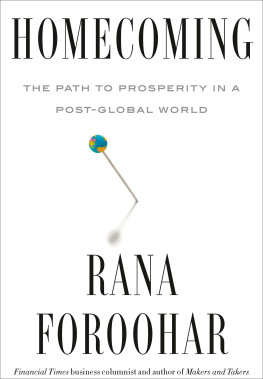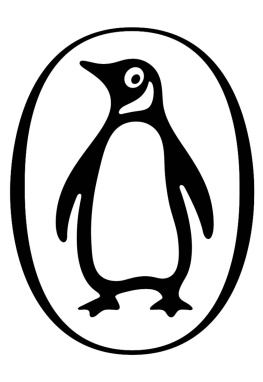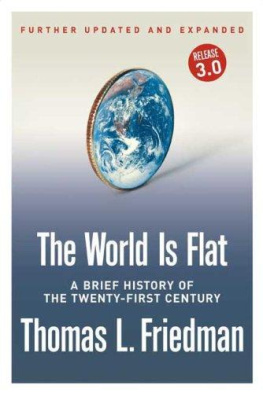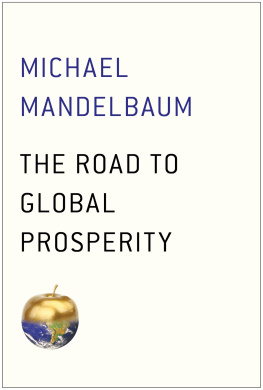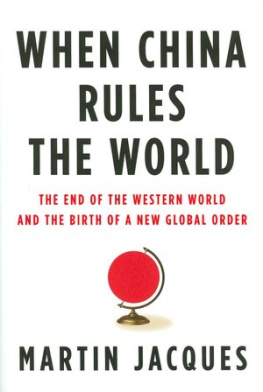We offer to read an annotation, description, summary or preface (depends on what the author of the book "The World Is Flat: A Brief History of the Twenty-First Century" wrote himself). If you haven't found the necessary information about the book — write in the comments, we will try to find it.
When scholars write the history of the world twenty years from now, and they come to the chapter Y2K to March 2004, what will they say was the most crucial development? The attacks on the World Trade Center on 9/11 and the Iraq war? Or the convergence of technology and events that allowed India, China, and so many other countries to become part of the global supply chain for services and manufacturing, creating an explosion of wealth in the middle classes of the worlds two biggest nations, giving them a huge new stake in the success of globalization? And with this flattening of the globe, which requires us to run faster in order to stay in place, has the world gotten too small and too fast for human beings and their political systems to adjust in a stable manner?In this brilliant new book, the award-winning New York Times columnist Thomas Friedman demystifies the brave new world for readers, allowing them to make sense of the often bewildering global scene unfolding before their eyes. With his inimitable ability to translate complex foreign policy and economic issues, Friedman explains how the flattening of the world happened at the dawn of the twenty-first century; what it means to countries, companies, communities, and individuals; and how governments and societies can, and must, adapt. The World Is Flat is the timely and essential update on globalization, its successes and discontents, powerfully illuminated by one of our most respected journalists. Thomas L. Friedman has won the Pulitzer Prize three times for his work at The New York Times. He is the author of three best-selling books: From Beirut to Jerusalem, winner of the National Book Award for nonfiction and still considered to be the definitive work on the Middle East, The Lexus and the Olive Tree: Understanding Globalization, and Longitudes and Attitudes: Exploring the World After September 11. He lives in Bethesda, Maryland, with his family. Winner of the Financial Times/Goldman Sachs Book Award A New York Times Notable BookA Christian Science Monitor Best Book of the YearA Washington Post Best Book of the YearAn Economist Best Book of the Year When scholars write the history of the world twenty years from now, and they come to the chapter Y2K to March 2004, what will they say was the most crucial development? The attacks on the World Trade Center on 9/11 and the Iraq war? Or the convergence of technology and events that allowed India, China, and so many other countries to become part of the global supply chain for services and manufacturing, creating an explosion of wealth in the middle classes of the worlds two biggest nations, giving them a huge new stake in the success of globalization? And with this flattening of the globe, which requires us to run faster in order to stay in place, has the world gotten too small and too fast for human beings and their political systems to adjust in a stable manner?In this brilliant new book, the award-winning New York Times columnist Thomas Friedman demystifies the brave new world for readers, allowing them to make sense of the often bewildering global scene unfolding before their eyes. With his inimitable ability to translate complex foreign policy and economic issues, Friedman explains how the flattening of the world happened at the dawn of the twenty-first century; what it means to countries, companies, communities, and individuals; and how governments and societies can, and must, adapt. The World Is Flat is the timely and essential update on globalization, its successes and discontents, powerfully illuminated by one of our most respected journalists. The World Is Flat continues the franchise Friedman has made for himself as a great explicator of and cheerleader for globalization, building upon his 1999 The Lexus and the Olive Tree. Like its predecessor, this book showcases Friedmans gift for lucid dissections of abstruse economic phenomena, his teachers head, his preachers heart, his genius for trend-spotting . . . [This book] also shares some of the earlier volumes excitement (mirroring Rajesh Raos) and hesitations about whether were still living in an era dominated by old-fashioned states or in a postmodern, globalized era where states matter far less and the principal engine of change is a leveled playing field for international trade.Warren Bass, The Washington Post [An] exciting and very readable account of globalization . . . [Friedman] provides a compelling case that something big is going on . . . One mark of a great book is that it makes you see things in a new way, and Mr. Friedman certainly succeeds in that goal . . . In his provocative account, Mr. Friedman suggests what this brave new world will mean to all of us, in both the developed and the developing worlds.Joseph E. Stiglitz, The New York TimesThe World Is Flat continues the franchise Friedman has made for himself as a great explicator of and cheerleader for globalization, building upon his 1999 The Lexus and the Olive Tree. Like its predecessor, this book showcases Friedmans gift for lucid dissections of abstruse economic phenomena, his teachers head, his preachers heart, his genius for trend-spotting . . . [This book] also shares some of the earlier volumes excitement (mirroring Rajesh Raos) and hesitations about whether were still living in an era dominated by old-fashioned states or in a postmodern, globalized era where states matter far less and the principal engine of change is a leveled playing field for international trade.Warren Bass, The Washington PostNicely sums up the explosion of digital-technology advances during the past 15 years and places the phenomenon in its global context . . . [Friedman] never shrinks from the biggest problems and the thorniest issues . . . Ambitious.Paul Mangnusson, BusinessWeekExcellent . . . [This books] insight is true and deeply important . . . The metaphor of a flat world, used by Friedman to describe the next phase of globalization, is ingenious . . . The book is done in Friedmans trademark style. You travel with him, meet his wife and kids, learn about his friends and sit in on his interviews . . . [This method] works in making complicated ideas accessible . . . Friedman has a flair for business reporting and finds amusing stories about Wal-Mart, UPS, Dell, and JetBlue, among others, that relate to his basic theme.Fareed Zakaria, The New York Times Book Review (cover review)No one today chronicles global shifts in simple and practical terms quite like Friedman. He plucks insights from his travels and the published press that can leave you spinning like a top.Clayton Jones, The Christian Science MonitorFriedman is such a good reporter and writer that he will keep you turning pages . . . [He] is gifted at reducing big trends into easily digestible bites, providing a readable account of the main forces that have flattened the world.Peter Hadekel, Montreal GazetteGives us a glimpse of the brave new flat world that is already upon us . . . [Friedman] writes in a playful manner [and] likes to use lists and new expressions [and] while his technique may at times be lighthearted and informal, Friedmans meaning is clear: Accept the new world, adapt to it and prosper, or ignore the new developments at your peril.Russ L. Juskalian, USA TodayA brilliant, instantly clarifying metaphor for the latest, arguably the most profound conceptual megashift to rock the world in living memory . . . The World is Flat is well written, a fast read [that] covers all the bases . . . This is an important book.David Ticoll, The Globe and Mail (Toronto)Friedman is a smart guy, a good reporter . . . His best writing [in this book] comes when he acknowledges the problems of globalization.Kevin Drum, The Washington MonthlyBefore 9/11, New York Times columnist Friedman was best known as the author of The Lexus and the Olive Tree, one of the major popular accounts of globalization and its discontents. Having devoted most of the last four years of his column to the latter as embodied by the Middle East, Friedman picks up where he left off, saving al-Qaeda et al. for the close. For Friedman, cheap, ubiquitous telecommunications have finally obliterated all impediments to international competition, and the dawning flat world is a jungle pitting lions and gazelles, where economic stability is not going to be a feature and the weak will fall farther behind. Rugged, adaptable entrepreneurs, by contrast, will be empowered. The service sector (telemarketing, accounting, computer programming, engineering and scientific research, etc.), will be further outsourced to the English-spoken abroad; manufacturing, meanwhile, will continue to be off-shored to China. As anyone who reads his column knows, Friedman agrees with the transnational business executives who are his main sources that these developments are desirable and unstoppable, and that American workers should be preparing to create value through leadership and sell personality . . . [The books] last 100 pages on the economic and political roots of global Islamism are filled with the kind of close reporting and intimate yet accessible analysis that have been hard to come by. Add in Friedmans winning first-person interjections and masterful use of strategic wonksterisms, and this book should end up on the front seats of quite a few Lexuses and SUVs of all stripes.Publishers WeeklyOf globalism and its contented . . . Friedmans gloss, which seems merely rhetorical at first but turns out to have some legs, is that the world is flat. Which is to say: new communications technologies and business strategies have erased certain obstacles between nations and peoples in at least the realms of knowledge work and intellectual capital. India, for instance, graduates huge numbers of accountants each year who can readily be put to work doing the grunt labor of preparing Americans tax returns, leaving it to the erstwhile U.S. preparer to do something wonderful and meaningful with his or her timeestate planning, say, or portfolio management. Friedman is sober-minded enough to recognize, of course, that not all homegrown preparers are Warren Buffetts in the making, and that some people will not thrive when their jobs wander across the oceansthough some may wind up in the Colorado phone bank that, Friedman seems most impressed to learn, processes drive-through orders for a McDonalds franchise two states away. He is also quick to remark that the freer flow of information from developed to developing nation is a boon not just for the talented of the Third World, but also for the likes of certain bad guys: Globalization in general, he writes, has been al-Qaedas friend in that it has helped to solidify a revival of Muslim identity and solidarity . . . thanks to the Internet and satellite television.But Friedman is generally enthusiastic about world-changing trends such as just-in-time inventorying, supply-chaining, and insourcing. Those who look forward to a planet of Wal-Marts and Dells will be charmed. Those who dontwell, welcome to the flat world.Kirkus Reviews[Friedman] claims that the most significant events of the 21st century are happening now . . . with technology binding more and more countries together.Library Journal

